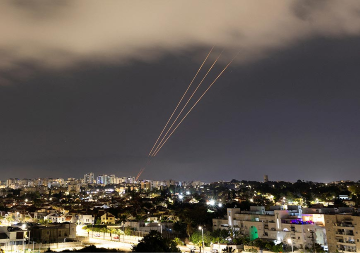
The Indian Space Research Organisation (ISRO) is reportedly considering a new policy for its direct-to-home satellite television services (DTH). It wants all the service providers to share capacity on a single satellite. This is certainly a bold approach to meeting India’s growing telecom demand. However, such a move may do more harm than good and raise numerous economic and security concerns. Rather, India should continue efforts to adopt a truly “open sky” policy, inviting foreign competition in to reinforce the capabilities of a leading space market.
Since the introduction of DTH in the early 2000s, India was aware that it could not meet the capacity demand with its own satellites. Thus, India adopted a type of “open sky” policy whereby both Indian and foreign satellites could be used to provide DTH services, but with preferential treatment to Indian satellites. Notably, the Department of Space (DoS) would lease capacity from foreign satellites only for short periods of time, with a view to bringing the services back to Indian systems once capacity is available.
Unfortunately, Indian satellites have had numerous problems, resulting in inconsistent services and outages. What’s more, delays in the deployment of certain Indian satellites have forced Indian DTH operators to lease more and more foreign capacity over the years. To counteract this trend, ISRO is seeking solutions to meet all of India’s DTH demands domestically. A proposal has, therefore, been put forward to launch a single satellite that will be able to meet all of the capacity needs for the DTH providers in India. Anyone leasing a transponder on a foreign satellite would have to switch their services to this master satellite.
From a practical standpoint, DTH providers will have to pay for the realignment of all their customers’ dishes. This will not be a small undertaking, and private companies are already raising objections to this requirement. But what about quality of service? Part of the reason why India has had to rely on foreign satellites is that it has not yet been able to meet the quality of services demanded by the booming Indian market. If these problems persist, and all of India’s DTH services are concentrated on one satellite, it is not impossible to imagine a complete television blackout across the country. And that is without considering the potential threats posed by space debris or cyber-attacks. In short, putting all its DTH eggs into one basket is far too risky for such a critical sector of India’s economy.
Rather than meeting its challenges with a risky, isolated master satellite, India should look to further open its skies so that it invites additional competition to provide capacity around India. In this way, DTH providers will be spread around numerous satellites and, should anything happen to a single satellite, not all services will cease to function. India could achieve this goal by allowing providers to deal directly with satellite operators, rather than having to go through the DoS. Such a shift would introduce many more reliable options for capacity across India, and the ensuing boom in capacity supply would drive prices down.
Admittedly, such a step creates risks for India’s own satellite providers. There will be more competition from well-established players and this could be a risk for a bourgeoning industry. But India’s is not a “bourgeoning” space industry. It has been a strong competitor for years and its new generation of space entrepreneurs is a testament that India can compete at the highest level. Shortcomings in the supply of domestic DTH capacity are not a result of inability but the result of being stretched too thin.
ISRO should look to reinforce India’s overall telecom capabilities by incorporating foreign resources where possible. The market will be large enough in the long run that there will be plenty of room for Indian DTH satellites, once they are available. Such a strategy would also be a signal to other countries that openness and competition should be embraced, not stifled.
The author is an Associate for LMI Advisors in Washington DC, where he advises on international legal issues related to space activities.
The views expressed above belong to the author(s). ORF research and analyses now available on Telegram! Click here to access our curated content — blogs, longforms and interviews.



 PREV
PREV

